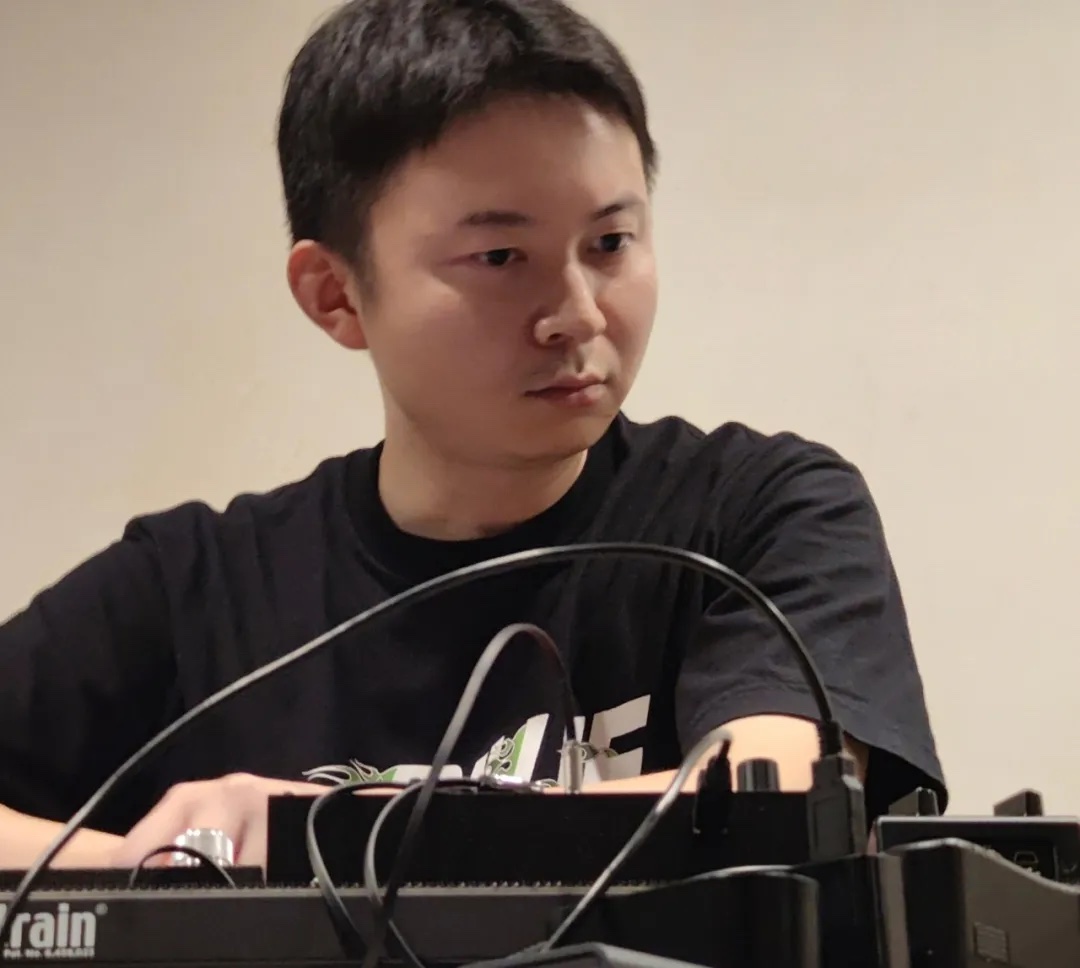
Shu Ride (photo by neciak)
An Interview with Shu Ride
Note from Saddle: the writer Edging, who runs the WeChat account DeadSeaScrolls, published this interview with noise musician Shu Ride (舒骑) last year. A lot of what Shu said in it has stuck with me since then, especially the anecdote he shares about Toshiji Mikawa towards the end. A few weeks after this interview, he’d play live with Mikawa in one of the best noise performances I’ve ever seen (I say a few words about that performance in this piece). There’s enough in here that felt worth sharing, so I decided to do this translation.
Besides being a musician, Shu Ride is one of the cofounders of Trigger, along with Junky (of Torturing Nurse fame), Huang Lei and Mei Zhiyong. What he says at the beginning of the interview about not having put out a record in over a decade is now out of date! He recently contributed to a compilation of Chinese noise and industrial musicians released by L. White Records in Germany earlier this year. Besides that, you can find some videos of him on Youtube and his Instagram.
Original interview by Edging
March 27, 2024
This wasn’t an interview exactly. It was more of a conversation — a friendly chat between two people still not that familiar with each other. We orbited around the topic of noise, discussing anything else that came up.
In the course of asking questions, I tried proceeding in a “noise-like” fashion, circling around this style, setting down a few main lines, ascending the chains of logic, and combining viewpoints so that by the end, I could output an essay about “Chinese noise.” But it turned out that this essay took a path much like Shu Ride’s work. It’s a little bit like noise, but not completely noise.
Perhaps this is also because it was mostly written by Shu Ride himself. He is certainly a “non-standard Chinese noise musician.”

Q 1: There’s not much information about you on the internet. Is that intentional?
Shu: Of course not. It’s quite clear that, whether you measure it by frequency of performances, collaborations, releases, or whatever other metric of an artist’s influence you’d like to use, I’m lacking in all of them. It’s natural that there’s not much content about me on the internet. Speaking subjectively, my own personality and lifestyle are a factor as well. I’m not purposefully hiding what I create, it’s just that I haven’t reached that level of maturity yet.
Q 1.1: What are you imagining when you say “maturity”?
Shu: What I mean by maturity is simply reaching a sufficiently professional level in one’s work. For example, Ding Yi paints crosses. That’s his specialty. He can create all sorts of variations, but across his work, he’s still relying on this specialty. When people invite him to things, it’s because they recognize this. To reach that kind of maturity, one has to first enter a field and then develop their specialty/style so that others will recognize it. Anyone can recognize Ding Yi’s crosses right away. For an author, it’s also easy to develop one’s creativity on the foundations of their specialty.
Noise doesn’t need to be this professional, but the principle is still the same. Perhaps I need to spend an unusually long time in the exploration phase looking for my own specialty — a style that can be distinguished and expanded upon. Then I’ll be able to say I’ve reached sufficient maturity. For now, I still have a long road ahead of me.
Q 1.2: Looking at the current state of Chinese underground and experimental music, it’s hard to deny that going without releases hurts one’s exposure. Have you considered this problem?
Shu: Of course I worry about that. But in this community, I know people with discographies as vast as the ocean as well as people who don’t release anything, not even overseas. If I had more free time, I’d concentrate more on putting out releases.
Q 1.3: Based on your response, would it be safe to say you’re still not confident in your work?
Shu: I’m confident enough. To get on stage and perform, you need confidence. Confidence comes from deliberation and practice. I have confidence in all the effort I’ve put in.
Q 2: For a musician who's been working since 2008, you really don’t have many releases at all. Other than lack of time, is there another reason?
Shu: It’s mainly just not having enough time or energy. I might spend several months recording dozens of takes, all for a few minutes of noise. This kind of creative process is too hard for a salaryman. Putting out records requires a high level of production, and no one wants to release something that can’t compare to the level of polish you hear in pop music. But we’re DIY producers, not producers at some big corporation. There’s quite a distance between the level of production we can do and what a big company can.
Now, about creation itself, I still think that what I make is in the experimental stage. Lots of things aren’t mature yet. I don’t want recordings and releases to ossify what I’ve achieved so far. On the other hand, I certainly think it’s a good thing to have a recording, or rather a record, of performances. When I look back and listen to older recordings, even if I’m still using the exact same set, many of the sounds I recorded and the way they were linked together feel quite mysterious to me, as though I’m listening to someone else.
Q 2.1: But if we survey the pioneers of noise, there’s plenty with poor production. There’s no shortage of Lo-fi. What kind of production is it that you’re after?
Shu: Certainly. One’s genius isn’t stripped away by their medium. Production requirements have to do with one’s style and the time period they’re working in. Speaking in terms of style, there’s certainly a special texture to the rough and unpolished. However, for some works, perhaps if there were a more polished version, they’d be even more moving. Turning to the question of timing, why are there so many classic records getting remastered over and over? The times have changed and the auditory experience people want has changed too. This is an era when people’s taste has been formed by Travis Scott. How is noise going to stand up in an era like this? It needs to pass through ears that have listened to Travis Scott. This isn’t my own standard; it’s the requirements of our age.
Q 2.2: We all know that, for the most part, noise can’t be repeated. If you don’t record them, aren’t you worried some of the highlights of your work will be lost?
Shu: Actually, I record some. I just don’t release them.
Q 2.3: Even after you’ve found a mature style, won’t you still need to keep innovating? In my view, experimental music is always moving forward. It’s not a process with an absolute endpoint.
Shu: In music, there’s most certainly a concept of maturity. However, maturity is standing on your feet, not coming to rest. Of course, “Kill Ziggy” is the best attitude. Maybe mature musicians are all desperate to kill themselves. For now, I’m not sure yet.
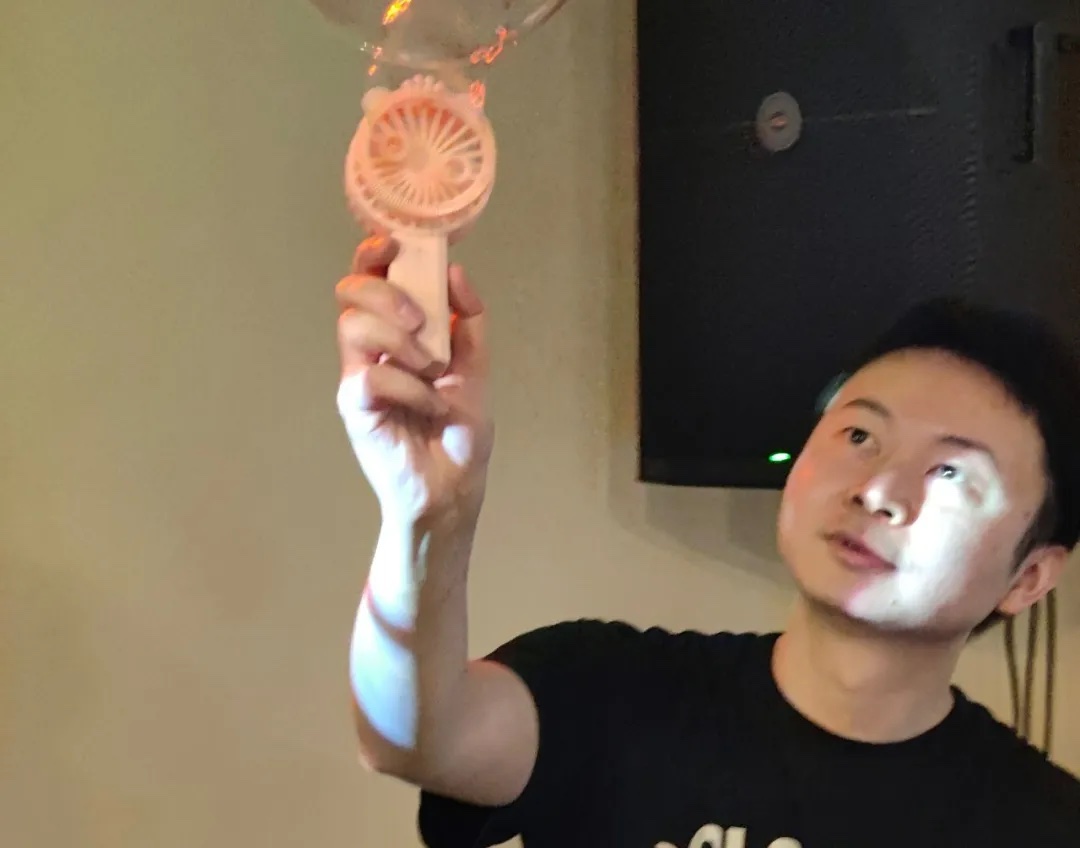
Q 3: From the works of yours that I could find, your style has two clear periods to it. In your early works, the sound was dense and the volume loud. Your newer works are more like a collage, it sounds like you’re seeking sharper sounds and more playful auditory sensations. What prompted this transformation?
Shu: This is because when I started, my performance format was based on contact mics and effects pedals. Really the performance was my body. The contact mics would pick up my bodily movements and the distortion pedals would amplify them. When I ran out of stamina, that’s when the performance stopped. It’s quite clear that this kind of performance was influenced by what Junky was doing at the time.
As for this change that happened, I believe it was also prompted by Junky. After he started using line selectors, he was constantly putting new life into his performances, combining multiple channels of sound and crashing them against each other. This was truly noise arrangement. My own transformation took a slightly different path. In 2017 I bought a noise synthesizer after seeing Mei Zhiyong recommend it. After that, I searched around for other similar products to collect, including many small semi-modular synthesizers. At first, I wanted to use line selectors and mixers too, but after trying them a few times I felt like it wasn’t ideal. The sound sources I used were too diverse and I couldn’t get them to sound right together. For an experimental creator like me, this was all quite difficult. Later on, I transitioned to a kind of synthesizer-based performance where I’d design several tracks in advance, set up the sync, CV and audio input between the synthesizers, and then I'd let them interact with each other. So, changes in equipment brought about these changes in my aesthetics and what I was interested in.
Q 3.1: From what I can hear, your style and Junky’s are quite different. Junky’s work pursues changes in rhythm and frequency, with a very strong sense of improvisation, whereas in your work (based on the one piece I listened to), the arrangement is very deliberate, there is much more of a focus on the variation of timbres and the sharpness of sounds.
Shu: Your observations are quite accurate.
Q 3.2: Continuing on what you said, most music fans don’t know very much about software or hardware. Instead, they approach noise by listening for sounds and picking out the ones they like. How do you see the two-dimensionality of this kind of creation and appreciation?
Shu: This isn’t a problem. With any kind of creation, there’s always the possibility that normal people will accept it. However, when you compare noise to many other kinds of music, there’s a greater degree of participation from the listener. Maybe this is just “cool media”. It’s only by participating in noise that you can capture certain kinds of information or create certain kinds of meaning. It’s best to watch noise live. Most people don’t have the right equipment or environment to listen to it on their own.
Q 4: It seems you prefer live performance [over recordings]. Why is that?
Shu: For me, each performance feels like making a report to my friends. What have I learned? What can I do now? I report it all to my friends. So generally speaking, I do my utmost to play something completely different for each performance. You might come in completely prepared, but on stage, all sorts of circumstances can arise. You might have to rely completely on improvisation, and then something magical happens. This kind of unrepeatable experience is precious. There’s also the connection with the audience, even with the audience that’s only watching videos of the performance. Now that I have my own venue (Trigger in Shanghai) I get to experience even more how important that connection is. It’s a source of immense wealth for musicians. You could say that without this connection, music would be nothing for me.
Q 4.1: Live noise performances are a kind of limited improvisation. Would you agree?
Shu: Yes, it’s just a question of degree. DJing is also limited improvisation. If the audience below the stage is dancing, then I’d keep playing what I’m playing a little longer. Many fundamentalists would say the best noise is all pure improvisation. What is pure improvisation then? One time I had someone who’d never touched noise before try out my equipment. I told him to do whatever he wanted, and the effect was fantastic. I’d never thought you could linger on this sound, or that you could drop there.
I think improvised performances demonstrate the process of finding a sweet spot, just like jamming. When jamming, everyone typically has a basic tacit agreement, for example, of the rhythm or chords, and then they proceed from there. Very quickly they find a point where they can all play together. This is a jam’s sweet spot, and of course it can arrive quite quickly. With experimental music, that sweet spot might take much longer to reach, but you still have to find it. You have to grasp onto the arrival of that sweet spot. Maybe this is what limits an improvisation. You can follow your own pace in searching for this, but in the end, you still need to let everyone taste that sweetness.
It’s interesting. One time, I prepared a very long arrangement for one of my sets. I wanted to bring in two sheets of paper to perform from, but I ended up forgetting them. The whole time I couldn’t remember anything from them… But I knew where the sweet spot for this set was supposed to be. What I needed to do was find another way to get to that sweet spot. In the end, I was still able to have a smooth performance this way.
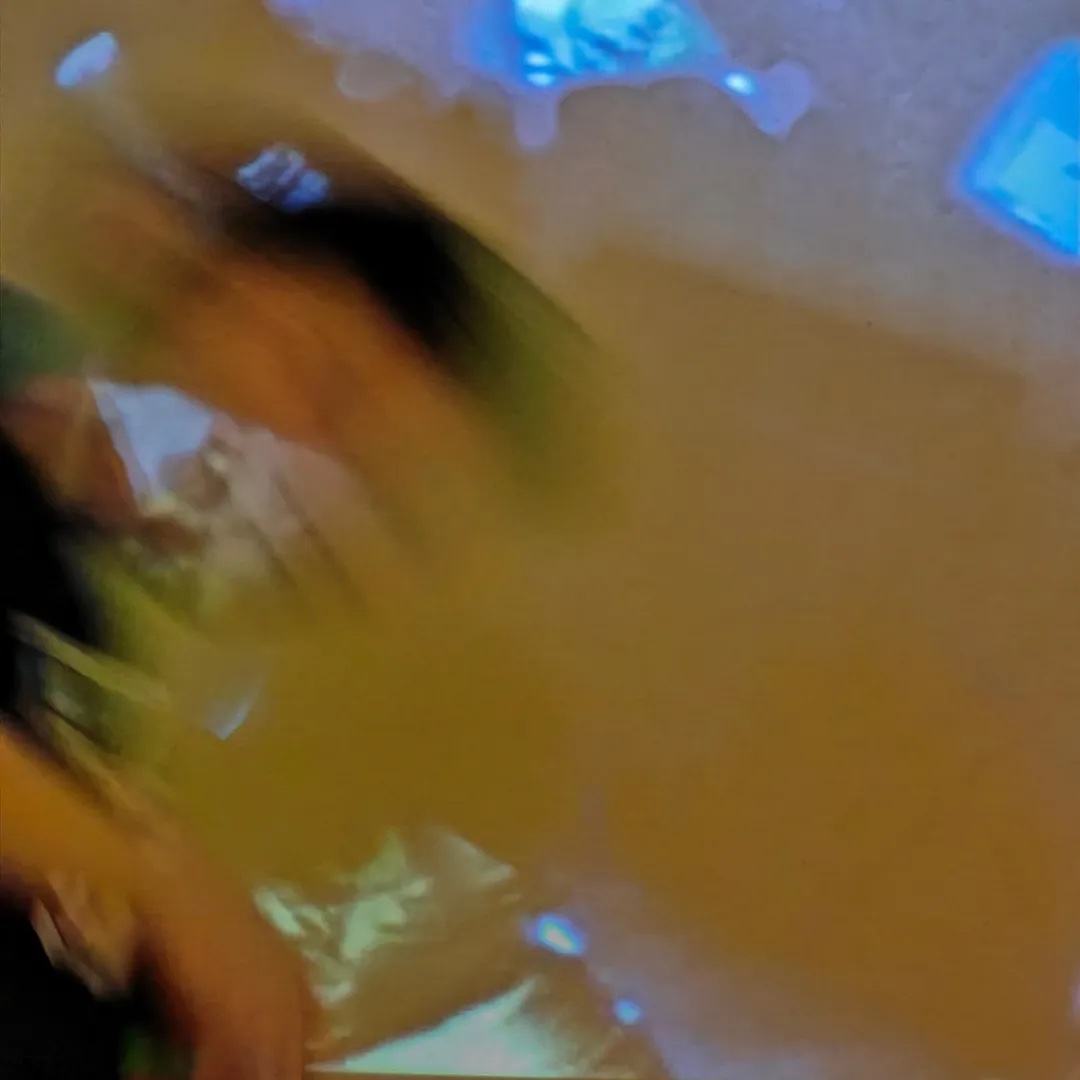
Q 5: In the early days you used computers for your music, but in recent years you usually use effects pedals and other hardware. For you, what is the difference between these two? Why did you make this kind of change?
Shu: I’ve always used both software and hardware, so that hasn’t changed. Also, when it comes to hardware, I use both analog and digital. I also have some more cumbersome gear that I rarely use. I try to use one device for multiple functions in order to use up less space for my sets. Around half of the hardware I use is digital. For noise, this is relatively uncommon.
These days digital equipment based on a DSP are basically small computers. In a tiny box, you have very rich logic circuits that allow for things you would have needed a computer or a lot of gear connected together in the past – and lots of DSP-based equipment is very cheap. For creators who use hardware, I think we’re living in a wonderful time.
That goes with software as well. For lots of hardware, there’s a software emulator. Not many people are going to rebuy it all as hardware. Even if the hardware’s easier to use, in software you can use as many as you want without any limit. I have a set I like that uses a phone app and a MIDI controller. Later on, I even got a Bluetooth adapter for it. Performing like this really is free and easy. All I have to do is take this tiny MIDI controller and I can express myself however I feel.
Q 5.1: Are you worried that with the lower barrier of entry to new equipment, individual styles might become less distinct? (If small portable devices can replace most other equipment, then everyone would gravitate towards the same multi-use equipment to perform and create with.)
Shu: It’s precisely the opposite. Older equipment restricted people to making similar sounds.
I believe that with today’s digital gear, for friends just entering the field, the biggest problem they have is confusion from the vast number of tools. You’re presented with limitless possibilities. How can you deal with that? When you buy analog gear, all you need to do is copy other people’s signal paths, but if I give you a computer, do you still know what it is you want? What you’re likely to lose isn’t an individual style, but your own self.
Obviously, I don’t look down on those who use older gear or who don’t even use computers. Style transcends equipment. The greatest noise musician in Japan is Junko [a member of Hijokaidan known for her vocals]. I believe this is the general consensus.
Q 6: When discussing creation, you mentioned that it’s like making electronic dance music, and you also talked about the influence hyper-pop has had on you. How has this new generation of music inspired your creativity?
Shu: Electronic dance music is a creative medium based essentially on integrating and transitioning between sound material. Hyper-pop mixes many different genres to make a brand-new style of pop music. All of this music has opened up my mind. Also, the complicated beats of trap and so on. There’s an article exploring [Mark Fisher’s concept of] Hauntology in music, which describes hyper-pop musicians like SOPHIE and Arca as the heroes of our time. I hope noise can have these kinds of heroes. In fact, these heroes have already appeared, and are even standing right next to us. I think noise should take its nutrients from pop music. This is quite normal since pop music is the quintessence of an era’s musical creativity. Recently, I saw that after Billie Eilish won the Oscar for Best Original Song, Kazuma Kubota had liked a post about it. Clearly, Billie’s music and live performances have impacted many noise musicians. Sometimes, one can find enough explosive energy in pop music to begin the road to becoming a noise hero. I’m not joking.
Q 6.1: What do you think “pop noise” should be like?
Shu: Maybe listen to Kazuma Kobata’s next album? We’ll see if he’s learned anything from Billie, haha! But what’s clear is that pop noise is definitely not Masami Akita’s Merzbeat, that really was a disaster…
Q 6.2: SOPHIE and Arca’s work have certainly blurred the line between noise and pop music, but they’re still quite far away from pure noise, especially in terms of the intended auditory experience. (Pop music is, in the end, after mental pleasure, while noise chases bodily pleasure). Do you agree?
Shu: I brought up SOPHIE and Arca because the author of that article was asking a question: is there still new music? Can new music only be the ghost of old music? Through close listening, he concludes that SOPHIE and Arca have created a new kind of musical hero and that they’ve defeated Hauntology. Is noise also a product of the battle against Hauntology? Can noise transcend rock and electronic music? Is noise an end or a beginning? Yan Jun explored this question in a long essay he published last year.
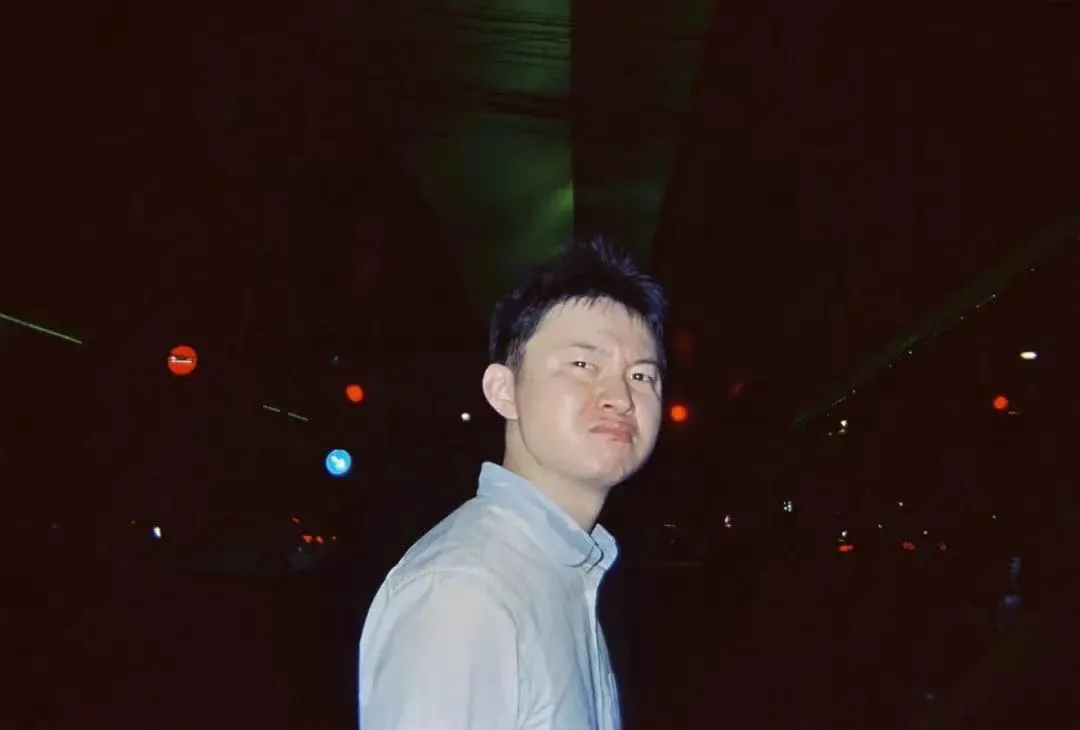
Q 7: When I listen to your new work, it approaches the thinking of some of the other experimental musicians I’ve listened to lately, incorporating the fragmentation and plasticity of the modern day, without the burden of any musical inheritance. How do you think about this problem yourself?
Shu: Maybe I can’t express it well, but conceptually, this piece was a tribute to Kaoru Abe, so, in a way, it was inheriting something. Fragmentation of musical structure, plasticity of tone – maybe there is a sort that’s excessively new-school, to the point that it doesn't feel like noise. The plasticity is related to the kind of digital equipment I like to use, and this can have a definite difference compared to classic, old-school noise. As far as the fragmentation, maybe that’s influenced by a kind of space left by the improvised saxophone solo.
Q 8: Following the previous question, when I listen to your work, I hear the traces of an old-school noise musician. There’s the feeling of a connection between old and new. What do you think about this?
Shu: Many years ago, when I was visiting Tokyo, I saw that there’d be a show where Toshiji Mikawa played solo. I think it started at 6:30 in the morning. I got up early and ran over there to watch. Sure enough, Mikawa got on stage and played all morning. The sun was still just rising. He used a setup that we were all familiar with. Every sound source, effects pedal and connection was the same. I naturally thought he was going to play some real explosive noise. But it turned out it wasn’t like that at all. Maybe he was worried the audience wasn’t awake yet. He took the four or five channels of sound that he normally used and played them separately, one by one. None of the channels sounded like noise. We all of course knew what these sounds felt like when played together: it would be the king of noise that we were all familiar with. But separated, Mikawa could be a hipster. I think I want to be this kind of hipster too. I want to take all the sounds from old-school noise and structure them so as to produce my own sound.
Q 8.1: Speaking of that, what “old school” noise musicians do you like?
Shu: T.E.F., Sickness, Xome, K2, and Painjerk. When it comes to the real OGs, these are who come to mind. These guys are heroes.
Q 8.2: As a musician who understands gear and what it’s like to make things, when you listen to noise, do you feel something different?
Shu: This question is hard to answer since I don’t know what feelings other people have when they listen to something. Sometimes I’ll play a song and force people to tell me what they feel (not just whether or not they like it), but it’s still very hard to receive an answer that has any value. There aren’t many people who know how to talk about a musical work.
Maybe music appreciation is something you have to study. I’m not saying audiences need to study how to discern time signatures and chords or understand orchestration. None of this is very important. What I’m saying is they need to learn how to enter music. To say it simply, they need to “hear their way into it”. Avant-garde music perhaps isn’t all that easy to listen your way into. There are lots of things even now I can’t get into.
I think what you mean by understanding equipment and creative processes, it’s like what I just said about discerning time signatures, chords and orchestration — they’re something at the level of skill. They will help you enter into a piece more confidently and make it easier to understand the musical structure and how it’s created. But when it comes to feeling, I’m really not sure. When feelings come from the bottom of our hearts, I believe that they’re all equal.
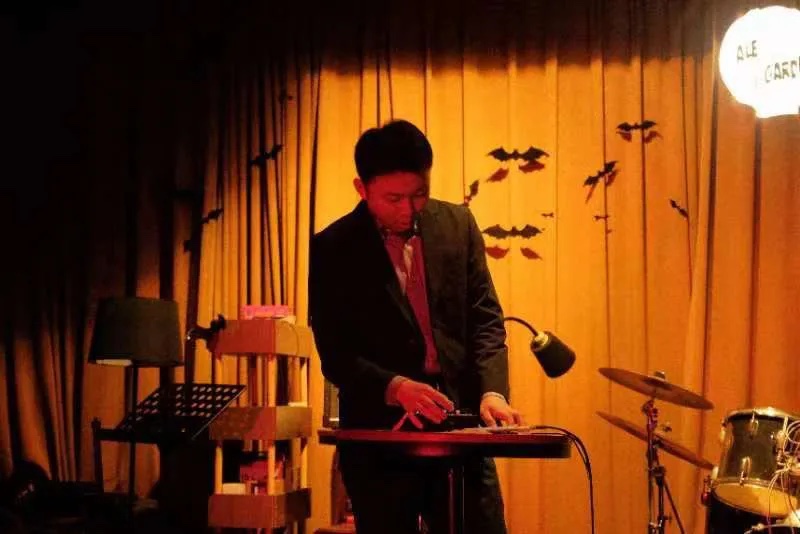
Q 9: What kind of music do you typically enjoy listening to?
Shu: According to Douban, I’ve listened to over 8000 records, so I can count myself at least as a halfway music lover. I say halfway because I don’t care much about genealogies. For example, when listening to a genre, I don’t pay attention to the historical process by which it developed. I tend to emphasize feelings and neglect theory, which is a bit of a pity. I like to listen to music that doesn’t really belong to a particular genre. I usually can’t stand music that insists on a particular sound or chord progression.
Besides noise, the music I listen to most is jazz. Traditional or modern, I love it all, because in jazz, genre isn’t very important. Every sideman can take the lead. It’s all organized very casually. Whether playing compositions or jamming, there is constant variation and no one can constrain it. What I listen to second-most is heavily melodic pop songs, because I can appreciate the charisma that some singers have. A performer’s charisma is one of the most important aspects of music, and nowadays it’s come to be in short supply.
Because of work, over the last few years, it’s become quite a luxury for me to be able to listen to music seriously. Now when I have time, all I can do is listen to the most vital records. For instance, albums by major divas or first-tier rappers. It’s these albums that join together the most outstanding and famous producers of the moment. You can see why lots of singers on major labels can’t compete with the songs popular on Douyin: It’s because of the spirit pounded out by those producers. Of course, I also listen to noise quite seriously. What’s great about noise is that there are always a few heroes pushing the genre forward and reinventing it, so no time spent listening to it will ever be wasted.
Q 9.1: Let’s talk for a moment about the strange taste of noise musicians. First of all, so many musicians who play noise like stuff with melodies (Junky being the exception). Why do you think this is?
Shu: Because we are Chinese first. We have a love for catchy melodies somewhere in our genes.
Q 9.2: Also, many noise musicians are vegetarians. What’s up with that?
Shu: I don’t think there’s a big difference in the proportion of vegetarians among noise musicians compared with the art world as a whole. It’s just that when a noise musician does it, it seems surprisingly wholesome. Maybe it’s because noise musicians like to take everything to the extreme. As for me, I’m not a vegetarian. In fact, I’m a bit overweight…
Q 9.3: As both a salaryman and an experimental musician, do you ever feel torn? Does your music help you vent pressure from work? In terms of clothing, do you deliberately wear something different for work and for performances?
Shu: It’s like how lots of people categorize their WeChat contacts. It’s quite normal. I wouldn’t say that I’m “torn” necessarily. I don’t tell my coworkers that I do noise because there’s nothing in it that I can share with them. When I create, I usually try not to bring in the feelings I have from everyday life. But still, one is always carrying some kind of feelings with them, so it’s not completely clear. All I can say is that I devote most of my energy to noise. There was one performance where I wore a suit, and when I stepped off the stage, everyone patted my shoulder and said “You just got off work!” You can see a video of that performance on my Instagram.